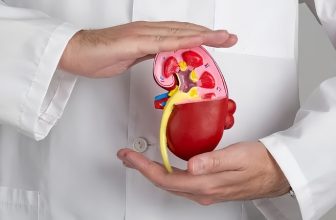“The Prostate Protocol: A Comprehensive Guide to Prostate Health and Natural Solutions”
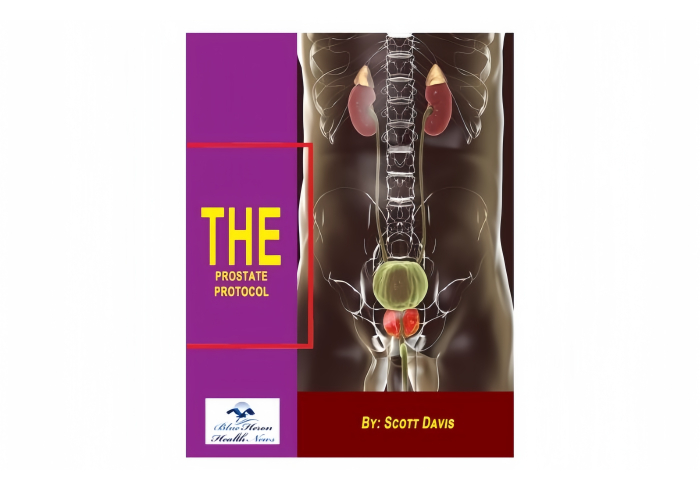
Prostate health is an important aspect of overall male well-being, yet it often remains misunderstood or overlooked until serious issues arise. This comprehensive guide aims to provide an in-depth understanding of prostate health, focusing on natural and holistic approaches to managing and preventing common problems such as Benign Prostatic Hyperplasia (BPH). By integrating science-backed strategies, we hope to empower men to take control of their health and improve their quality of life.
Understanding the Prostate and Its Importance
The prostate is a small gland, about the size of a walnut, located just below the bladder in men. It plays a key role in male reproductive health by producing a fluid that nourishes and transports sperm. As men age, the prostate can grow larger, which can lead to various health problems such as difficulty in urination, frequent nighttime bathroom trips, and in severe cases, urinary tract infections or kidney damage.
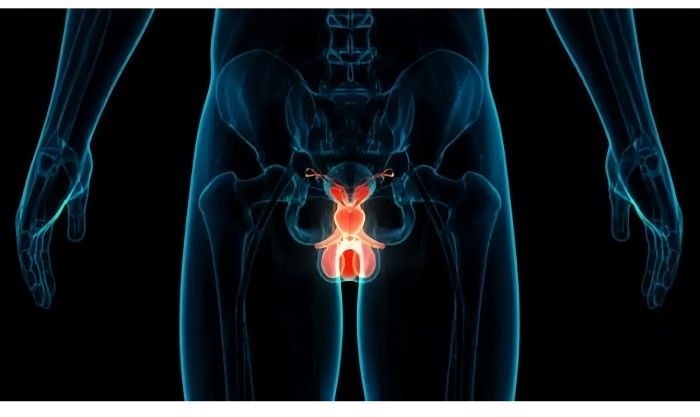
The most common condition related to the prostate is Benign Prostatic Hyperplasia (BPH), also known as prostate enlargement. BPH affects a significant percentage of men, especially those over the age of 50. Symptoms of BPH can be uncomfortable, affecting daily life and sleep quality, and they may worsen over time if left untreated.
Traditional Treatments for BPH
The conventional treatment for BPH often involves medications like alpha-blockers and 5-alpha-reductase inhibitors. These drugs help to relax the muscles around the prostate or reduce its size, but they often come with a host of side effects, including erectile dysfunction, dizziness, and fatigue. In more advanced cases, a surgical procedure known as Transurethral Resection of the Prostate (TURP) might be recommended. However, surgery can be invasive and comes with risks such as incontinence, impotence, and complications from anesthesia.

While traditional medical interventions can be effective, they do not address the underlying causes of prostate enlargement, and they often rely heavily on pharmaceuticals or invasive procedures. This is where natural and lifestyle-based approaches, such as those outlined in Scott Davis’s Prostate Protocol, offer a compelling alternative.
Hormonal Balance and the Prostate
The growth of the prostate is largely influenced by hormones, particularly testosterone and dihydrotestosterone (DHT). Testosterone is the primary male hormone, and DHT is a more potent derivative of testosterone that directly stimulates prostate growth. An imbalance in hormone levels can lead to excessive growth of the prostate, contributing to BPH.
Interestingly, the prostate is particularly sensitive to changes in hormone levels, more so than most other organs in the body. Hormones like estrogen, which is typically considered a female hormone, also play a role in prostate health. As men age, their estrogen levels can increase relative to testosterone, which may contribute to prostate growth. Maintaining a balance between testosterone, DHT, and estrogen is therefore crucial for prostate health.
The Role of Prostate Receptors
According to Scott Davis, the author of The Prostate Protocol, the key to managing prostate growth lies in the health of specific receptors within the prostate. These “prostate receptors” help regulate the amount of testosterone and DHT that the prostate absorbs. If these receptors are functioning optimally, they prevent excessive hormonal stimulation, thereby keeping the prostate at a healthy size.
Davis highlights that men who do not develop prostate enlargement into their senior years tend to have highly effective prostate receptors. Factors such as diet, lifestyle, and environmental exposure can influence the health and effectiveness of these receptors. Damage to these receptors often begins in a man’s 30s or 40s, leading to gradual prostate growth that becomes problematic later in life.
The Tsimane Amerindians: A Case Study in Prostate Health
Scott Davis was particularly intrigued by the Tsimane Amerindians, an indigenous group living in the Amazon rainforest, who exhibit exceptionally low rates of prostate enlargement. These men, despite having varying levels of testosterone, maintain healthy prostates well into their older years. Davis attributes their prostate health to their natural diet and lifestyle, which are free from processed foods, environmental toxins, and the sedentary habits that characterize much of modern life.
By analyzing the Tsimane diet and comparing it with that of men in industrialized societies, Davis identified key differences in nutritional intake that could explain their superior prostate health. The Tsimane diet is rich in whole foods, including fresh vegetables, fruits, fish, and nuts, which provide the nutrients necessary to support healthy prostate receptors.
Nutrition for Healthy Prostate Receptors
A major component of The Prostate Protocol is the emphasis on nutrition specifically designed to strengthen prostate receptors. This involves consuming foods that support hormonal balance and avoiding those that damage prostate receptors. Davis analyzed over 500 different food types and ingredients to determine which are beneficial and which are detrimental to prostate health.
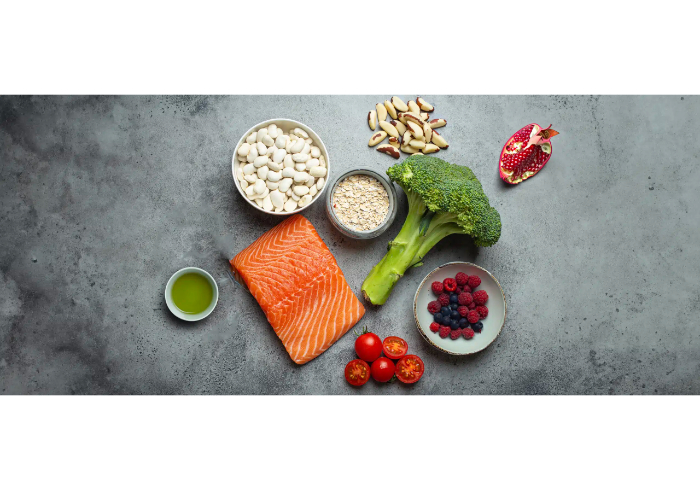
Foods That Support Prostate Health
- Cruciferous Vegetables: Vegetables like broccoli, cauliflower, and Brussels sprouts are rich in compounds known as sulforaphanes, which help detoxify the body and support hormone balance. These compounds have been shown to reduce the risk of prostate cancer and support the health of prostate receptors.
- Tomatoes: Rich in lycopene, an antioxidant that has been found to support prostate health, tomatoes can help reduce oxidative stress and inflammation in the prostate.
- Pumpkin Seeds: These seeds are an excellent source of zinc, which is crucial for hormone production and prostate function. Zinc helps regulate testosterone levels and supports the immune system.
- Fatty Fish: Omega-3 fatty acids found in fish like salmon, mackerel, and sardines have anti-inflammatory properties that can help reduce prostate swelling and promote healthy receptor function.
- Green Tea: Rich in polyphenols, green tea has anti-inflammatory and antioxidant properties that may help in preventing prostate enlargement and supporting overall prostate health.
Foods to Avoid
While some foods are known to support prostate health, others can have the opposite effect, damaging prostate receptors and contributing to enlargement. Among these are processed foods, sugary beverages, and foods high in unhealthy fats. One particular food that Scott Davis emphasizes avoiding is soy-based products, which are often touted as healthy but may contain phytoestrogens that disrupt hormone balance in men and adversely affect prostate receptors.
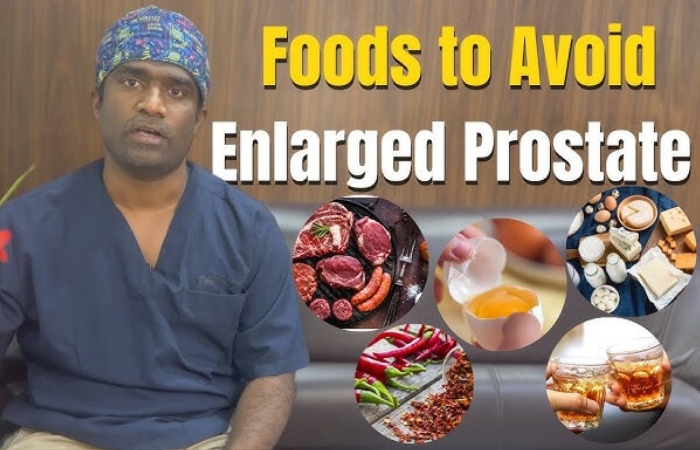
Developing a Prostate-Healthy Diet
Davis provides a day-by-day action plan for implementing dietary changes that support prostate health. The key is not just to eat healthy foods but to consume those that are specifically beneficial for the prostate. The action plan focuses on reducing inflammation, balancing hormones, and strengthening prostate receptors through targeted nutrition.
An effective approach involves gradually eliminating harmful foods while incorporating nutrient-dense alternatives. For example, replacing refined carbohydrates with whole grains, and adding more leafy greens and berries to daily meals. Additionally, specific herbs and spices, such as turmeric and saw palmetto, have been included in the protocol for their anti-inflammatory and hormone-regulating properties.
Lifestyle Modifications for Prostate Health
In addition to diet, lifestyle factors play a significant role in prostate health. A sedentary lifestyle is a major risk factor for BPH, as it contributes to weight gain and hormonal imbalances. Exercise, particularly aerobic activities like walking, swimming, or cycling, can help maintain a healthy weight and improve hormone levels.
Stress management is another important aspect of maintaining prostate health. Chronic stress can lead to elevated levels of cortisol, which in turn can negatively impact testosterone levels and contribute to prostate growth. Techniques such as meditation, deep breathing exercises, and yoga can help manage stress and promote hormonal balance.
Debunking the Myth of Prostate Supplements
One of the key points that Scott Davis makes in The Prostate Protocol is that there is no magic supplement that can cure prostate enlargement. Many prostate supplements on the market are marketed as miracle solutions, but they often fall short of delivering real results. The reason for this is that supplements alone cannot address the underlying dietary habits and lifestyle factors that contribute to prostate problems.
Davis explains that while certain vitamins and minerals, such as zinc, selenium, and vitamin D, are beneficial for prostate health, they should be obtained primarily from whole foods. Supplements may lack the synergistic effects of nutrients found in natural foods, and they are often poorly regulated, meaning they may not contain the ingredients or potency listed on the label.
A Real-World Success Story
One of the most compelling parts of The Prostate Protocol is the story of its development and testing. Davis tested his protocol with hundreds of men around the world, conducting interviews and analyzing the results to refine his approach. The protocol has been successful in helping men reduce prostate size, improve urinary flow, and regain their quality of life—all without resorting to drugs or surgery.
The guide also shares the personal story of a man who, after following the protocol, experienced significant improvements in his symptoms. Despite only following about 50% of the recommended steps, he noticed a drastic reduction in his nighttime bathroom visits and an improvement in his urine flow. His PSA levels, a marker for prostate health, dropped to normal levels, and an ultrasound confirmed that his prostate had returned to a healthy size.
Moving Forward: Taking Control of Your Prostate Health
The path to a healthy prostate is not about quick fixes or miracle pills; it is about making informed choices and consistent efforts to improve overall health. The Prostate Protocol provides a practical, actionable plan that can be tailored to fit individual needs. By focusing on the root causes of prostate enlargement—hormonal imbalance, poor diet, and lifestyle factors—this guide offers a sustainable solution for long-term prostate health.

Taking control of prostate health involves adopting a holistic approach that includes nutrition, exercise, stress management, and informed decision-making. For men experiencing symptoms of BPH, or those with a family history of prostate issues, proactive measures can make a significant difference in maintaining a high quality of life.
Conclusion: The Power of Natural Healing
The prostate is crucial for male health, and its well-being impacts overall quality of life. Unlike conventional treatments that manage symptoms, natural approaches like The Prostate Protocol address underlying causes for a sustainable solution. By focusing on hormones, diet, and a healthy lifestyle, Scott Davis promotes simple dietary and lifestyle changes to improve prostate health. Starting small and staying consistent can lead to significant improvements in well-being. The choice is yours: take action now for a healthy prostate, better sleep, fewer worries, and greater freedom.









